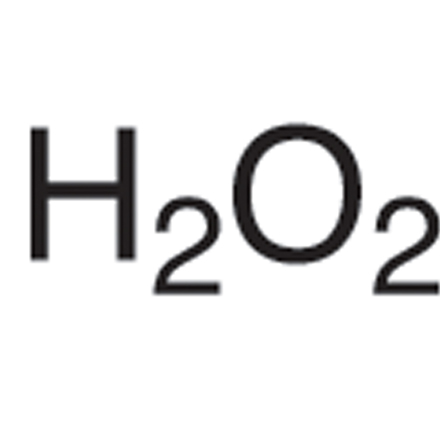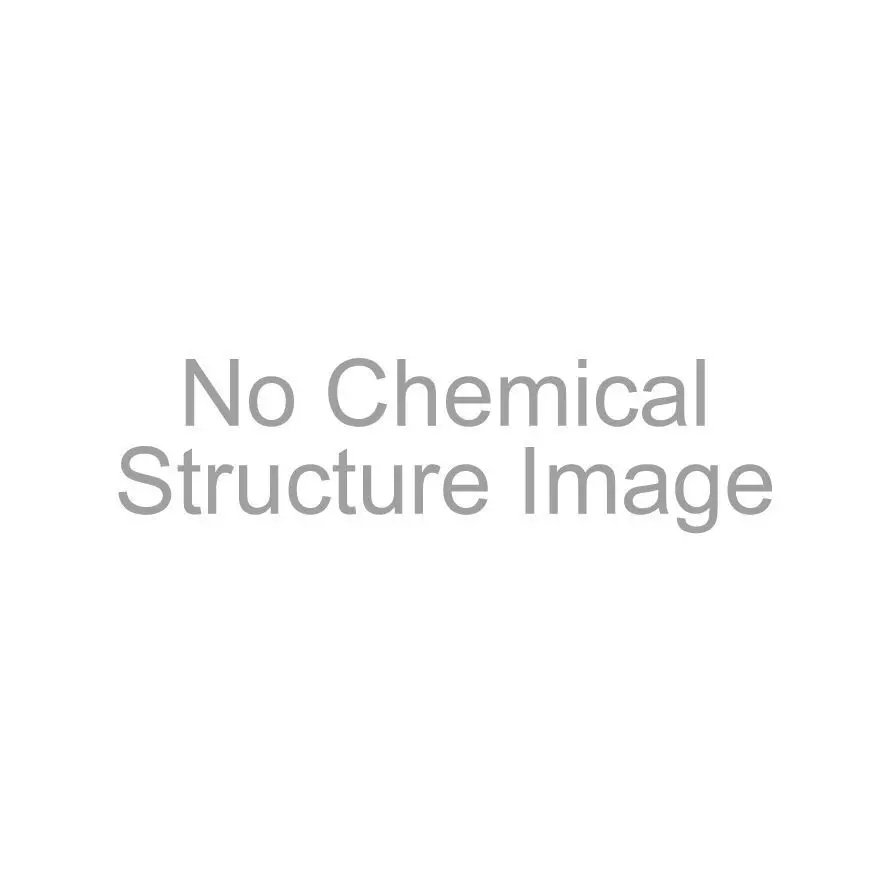Maximum quantity allowed is 999
CAS RN: 7722-84-1 | Product Number: H1222
Hydrogen Peroxide (35% in Water)
Purity:
* The displayed price is the unit price and does not include consumption tax. The unit prices displayed are the latest and are subject to change without notice.
* To send your quote request for bulk quantities, please click on the "Request Bulk Quote" button. Please note that we cannot offer bulk quantities for some products.
*TCI frequently reviews storage conditions to optimize them. Please note that the latest information on the storage temperature for the products is described on our website.
Supplemental Product Information:
[Handle with Caution]
The bottle used for this product is specifically designed to transport H2O2 safely and allows for evolved oxygen gas to escape. Due to the bottle’s design, the contents may leak if mishandled transportation condition or from laying it sideways.
When opening the barrier film and bottle, make sure to Wear Impermeable Gloves. If you observe any leaks, wipe off the leaked liquid with a thoroughly wrung waste cloth before use.
| Product Number | H1222 |
| Molecular Formula / Molecular Weight | H__2O__2 = 34.01 |
| Physical State (20 deg.C) | Liquid |
Storage Temperature 
|
Room Temperature (Recommended in a cool and dark place, <15°C) |
| Condition to Avoid | Light Sensitive |
| CAS RN | 7722-84-1 |
| Reaxys Registry Number | 3587191 |
| Merck Index (14) | 4798 |
| MDL Number | MFCD00011333 |
| Appearance | Colorless to Almost colorless clear liquid |
| Concentration(Redox method) | 35.0 to 36.0 w/w% |
| Melting Point | -26 °C |
| Boiling Point | 107 °C |
| Refractive Index | 1.34 |
| Solubility in water | Completely miscible |
| Pictogram |




|
| Signal Word | Danger |
| Hazard Statements | H302 + H332 : Harmful if swallowed or if inhaled. H314 : Causes severe skin burns and eye damage. H370 : Causes damage to organs. H372 : Causes damage to organs through prolonged or repeated exposure. H351 : Suspected of causing cancer. H401 : Toxic to aquatic life. H271 : May cause fire or explosion; strong oxidizer. |
| Precautionary Statements | P501 : Dispose of contents/ container to an approved waste disposal plant. P273 : Avoid release to the environment. P270 : Do not eat, drink or smoke when using this product. P202 : Do not handle until all safety precautions have been read and understood. P260 : Do not breathe mist or vapours. P220 : Keep away from clothing and other combustible materials. P210 : Keep away from heat, hot surfaces, sparks, open flames and other ignition sources. No smoking. P201 : Obtain special instructions before use. P271 : Use only outdoors or in a well-ventilated area. P264 : Wash skin thoroughly after handling. P280 : Wear protective gloves/ protective clothing/ eye protection/ face protection. P283 : Wear fire resistant or flame retardant clothing. P370 + P378 : In case of fire: Use dry sand, dry chemical or alcohol-resistant foam to extinguish. P308 + P311 : IF exposed or concerned: Call a POISON CENTER/doctor. P306 + P360 : IF ON CLOTHING: rinse immediately contaminated clothing and skin with plenty of water before removing clothes. P303 + P361 + P353 : IF ON SKIN (or hair): Take off immediately all contaminated clothing. Rinse skin with water. P301 + P330 + P331 : IF SWALLOWED: Rinse mouth. Do NOT induce vomiting. P371 + P380 + P375 : In case of major fire and large quantities: Evacuate area. Fight fire remotely due to the risk of explosion. P363 : Wash contaminated clothing before reuse. P301 + P312 + P330 : IF SWALLOWED: Call a POISON CENTER/doctor if you feel unwell. Rinse mouth. P304 + P340 + P310 : IF INHALED: Remove person to fresh air and keep comfortable for breathing. Immediately call a POISON CENTER/doctor. P305 + P351 + P338 + P310 : IF IN EYES: Rinse cautiously with water for several minutes. Remove contact lenses, if present and easy to do. Continue rinsing. Immediately call a POISON CENTER/doctor. P405 : Store locked up. |
| Chemical Substance Law (ENCS) |
1-419 |
| Poisonous or Deleterious | Deleterious substance |
| RTECS# | MX0899500 |
| UN Number | UN2014 |
| Class | 5.1 / 8 |
| Packing Group | II |

-
Used Chemicals
-
Procedure
-
To a solution of p-anisidine (123 mg, 1.0 mmol) and potassium carbonate (138 mg, 1.0 mmol) in acetonitrile (5 mL) was added hydrogen peroxide aq. (35%, 0.5 mL) at r.t. and the mixture was stirred at r.t. for 1 h. Potassium carbonate (138 mg, 1.0 mmol) and hydrogen peroxide aq. (0.5 mL) were further added at r.t. and the mixture was stirred at r.t. for overnight. The reaction mixture was diluted with dichloromethane (25 mL) and washed with saturated sodium thiosulfate aq. (50 mL), saturated aqueous sodium bicarbonate solution (50 mL), dried over sodium sulfate and filtered. The solvent was removed under reduced pressure and the residue was purified by column chromatography (on silica gel, dichloromethane:hexane = 0:1 - 1:4), giving 4-nitroanisole as a pale yellow solid (108 mg, 70% yield).
-
Experimenter’s Comments
-
The reaction mixture was monitored by UPLC.
-
Analytical Data
-
4-Nitroanisole
1H NMR (270 MHz, CDCl3); δ 8.21 (d, 2H, J = 9.2 Hz), 6.96 (d, 2H, J = 9.2 Hz), 3.91 (s, 3H).
-
Lead Reference
-
- Base promoted peroxide systems for the efficient synthesis of nitroarenes and benzamides
Documents
Safety Data Sheet (SDS)
The requested SDS is not available.
Please Contact Us for more information.
Specifications
C of A & Other Certificates
Sample C of A
A sample C of A for this product is not available at this time.
Analytical Charts

The requested analytical chart is not available. Sorry for the inconvenience.






